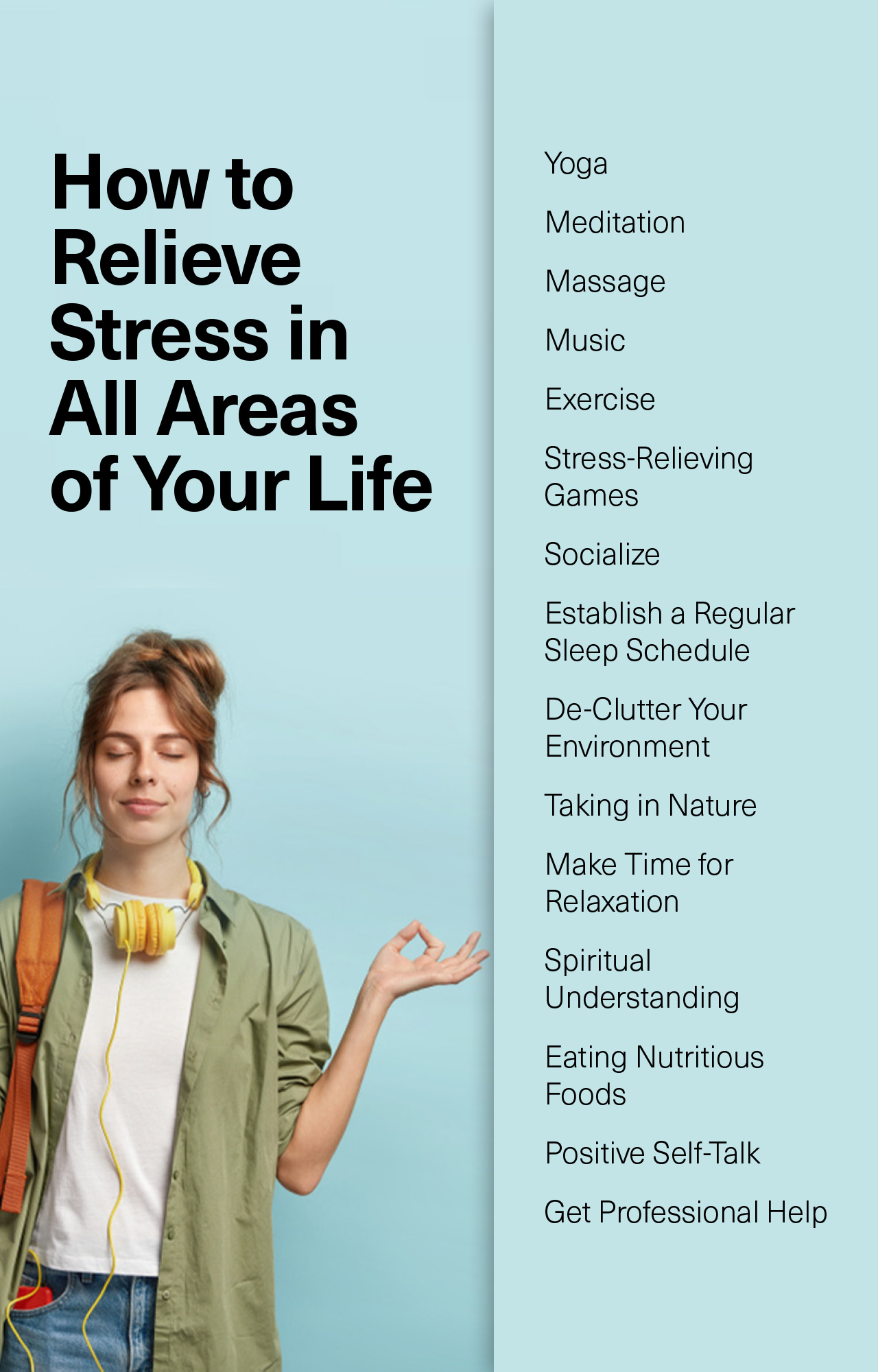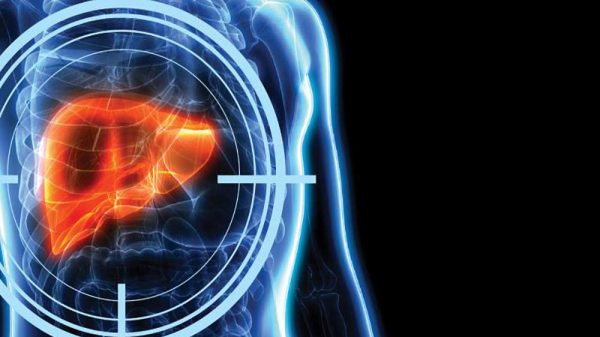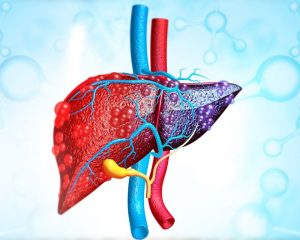Stress is a normal part of life. We all face stressors in at certain points. Some stressors are simple, day-to-day inconveniences such as traffic, giving a presentation during a work meeting, or taking a difficult exam at school. Other stressors are constant, such as a demanding job or coping with a chronic illness. Other stressors result from traumatic events that have lasting psychological repercussions. When you have fatty liver disease, minimizing stress plays a role in helping your liver heal.
Here we go over everything you need to know about stress management activities and strategies that help you handle the stress associated with managing your condition, as well as how to relieve stress in other areas of your life.
The Science Behind Stress: What’s Happening to Your Mind and Body?
Your mental state and physical wellbeing are inextricably intertwined and communicate with each other constantly. Experiencing physical distress has negative repercussions for your mental state. Similarly, experiencing mental stress, regardless of the source, has an impact on your physical wellbeing.
An Episode of Acute Stress
An acute episode of panic is essentially the “fight-or-flight” response. Though this response was initially an adaptive mechanism that benefitted survival. An immediate and perceived threat to our safety physically prepares us to flee the situation or engage in a combative confrontation. When this happens, the nervous system is activated and triggers the adrenal glands to release epinephrine and norepinephrine. As a result
The problem with the fight-or-flight response is that our minds are unable to distinguish between a life-or-death situation and a less dire stressor. A good example of a common stressful situation that may initiate the fight-or-flight response is preparing for a performance of some kind, whether it be a work presentation, music performance, or athletic performance. Being aware of an audience, having expectations are placed upon us to perform, and imagining the consequences if we don’t perform trigger an anxious response. Heart rate increases, blood pressure rises, and we may feel nauseous or shaky.
For some individuals, this stress response may evolve into a more severe episode called a panic attack. A panic attack may exhibit a racing heartbeat, heart palpitations, shortness of breath, sweating, and severe inability to concentrate. Though a panic attack is not life-threatening, a person having a panic attack may have mental and physical symptoms that are so severe, that he or she believes that death is imminent.
Chronic Stress
All of us experience acute episodes of stress when faced with a challenging task. Even panic attacks are shockingly common. But when stress episodes become constant or panic attacks are recurring, that’s when stress begins to wreak havoc on physical health. When you chronically experience stress, the physiological repercussions can be long lasting. Constantly high levels of epinephrine, norepinephrine, and stress hormones like cortisol can have damaging effects on physical health.
Chronic stress has many similar symptoms to acute stress. Symptoms of chronic stress may at times be easier to overlook but can manifest as serious health issues over time.
Symptoms of stress include:
- Disrupted sleep or inability to sleep
- Racing thoughts
- Feeling exhausted or frazzled
- High blood pressure
- Fast pulse
- Headaches
- Feeling unable to cope with unexpected situations
On a molecular level, chronic stress signals the cells in your body to work harder and faster. All cellular factories, including your mitochondria – the energy warehouses present in all cells – are working overtime to produce energy and carry out functions. As a result, excess waste in the form of free radicals. Under chronic stress, cells are unable to clear the waste fast enough to keep up with waste production. These free radicals cause damage to organic compounds within cells, which hinders cells from efficiently carrying out their duties.
Additionally, chronic stress triggers an immune system response and triggers chronic inflammation throughout the body. Acute inflammation is a normal response to illness and injury. In response to an injury or invading pathogen, your immune system will be on high alert to fight off foreign viruses or bacteria, or to rebuild damaged tissue. However, when your body is in a state of systemic inflammation, this means your body’s immune system is chronically activated without a direct cause. The immune system cells such as cytokines that are designed to be helpful under normal circumstances, now cause damage to organ tissues.
Moreover, chronic stress or psychological stressors like trauma can actually alter your DNA. The oxidative stress and inflammation resulting from such stress can cause epigenetic changes. Epigenetics describes environmental DNA changes that alter the way your genes are expressed.
In the brain, oxidative stress and inflammation often cause or worsen negative symptoms associated with chronic stress, such as depression and anxiety.
How Stress Affects Fatty Liver Disease
Stress affects all organs in the body, including the liver. Chronic stress, especially when combined with a diet high in refined sugars and saturated fat, triggers inflammatory pathways that result in more lipid accumulation in hepatic tissues.
In fact, research has shown how psychological stress actually makes nonalcoholic fatty liver disease worse. A review study published in the International Journal of Clinical and Experimental Medicine suggests that chronic exposure to psychological stressors may exacerbate nonalcohol liver disease. (1)
In a study assessing Chinese police officers, researchers found that having a stressful occupation led to a higher risk of developing fatty liver disease. (2) This has important implications for individuals in high-stress professions who chronically handle life-threatening situations. Other such occupations include firefighters, paramedics, and emergency room physicians and nurses. For individuals in these occupations, it is especially critical to manage stress to enhance health outcomes. This research also has implications for individuals in other occupations that may be demanding, even though they don’t require contact with life-threatening situations.
Experiencing stressful events and situations is unavoidable and uncontrollable. However, you do have a great deal of control over your mental reaction to stress. By developing coping mechanisms for handling stress, you can actually help lessen oxidative stress and inflammation that contributes to pathologies underlying various illnesses, including fatty liver disease.
Let’s get into different coping strategies for stress – some you may have heard of, and others may be completely new. Not all de-stressing techniques will be appropriate for your situation at a particular time. Always experiment and go with what works best for you.
Coping Strategies for Handling Fatty Liver Disease
Being diagnosed with a chronic disease like fatty liver disease is scary. On top of that, you may be told that there are no medications to treat it, and you must change your lifestyle and diet to reverse the disease. All of these factors combined can leave you feeling frightened and uncertain about the future. How are you supposed to completely change your lifestyle and diet while also keeping up with life’s demands? What will be the ultimate outcome of fatty liver disease?
One Step at a Time
Though the all-or-nothing mindset is common and normal inclination, completely undoing eating and lifestyle habits while setting up new ones is difficult. Plus, it’s nearly impossible to completely change your lifestyle and instill sustainable habits in just a day, a week, or even a month.
Set Small Goals
This goes hand-in-hand with making changes one step at a time. Setting small, attainable goals allows you to make measurable progress while you strive towards your bigger goals. For example, when striving to incorporate more exercise into your life, don’t aim to exercise every day for two hours. At first, maybe make a goal of briskly walking twice per week, for 30 minutes each session. Gradually increase your exercise from there. Maybe the next step is jogging instead of walking or incorporating an extra weekly workout with strength training.
When making nutrition changes, you also don’t have to radically change your diet in one day. Remember, the goal is to make a long-term change, not to follow a finite diet plan. Make small but significant changes each week. Maybe the first week you cut out all sugary beverages; the following week you cut out all refined carbohydrates; and the next week you increase your servings of fruits and veggies.
Letting Go of What You Can’t Control
Stressing about things we can’t control is an innate human characteristic. We long to be able to control the outcomes to every situation. We ask ourselves “why me?” when something unfortunate happens, and
The key is doing everything we can within our control and allowing the other influencing factors to unfold as they will. However, recognizing what we can control and distinguishing these things from what we can’t is an incredibly difficult balance to strike and takes practice. Detaching from outcomes is way easier said than done.
Staying Organized and Writing Things Down
Life can be so chaotic at times that it’s impossible to remember what you had for breakfast, let alone what your weekly goal is. The hectic daily grind becomes even more complex when you’re handling a health condition. Here are a couple of tips for staying organized to help you handle stress while staying as productive as possible.
- Journaling: Have a designated place where you can write down notes, observations, and other thoughts. Having a journal or notebook is better than a piece of paper, which can easily get lost. Keep a journal that you use to record your daily goals, as well as your goals for the week. Make a habit of writing down your goals at the beginning of the week and revisit them once a day to make notes and mark off achievement of your goals. This will allow you to measure your forward progress.
- Using a planner: Planners can work wonders for time management skills. Write down everything you need to do, including grocery store runs, paying bills, doctors’ appointments, and other obligations. Try even writing down the times that you’ll be at work, what times you’ll exercise, and plans with family or friends. Keeping a planner of all daily activities helps you plan ahead and maximize your time, while relieving your mind of having to keep track of all the minutia for the day. Spreading out tasks throughout the week and setting aside time for exercise or relaxation can make daily life seem less frenetic.
How to Relieve Stress in All Areas of Your Life
1. Yoga
If you’re looking for a way to de-stress, yoga may be right for you! Yoga is an ancient practice in Eastern medicine that focuses on physical movements. Yoga has become extremely popular in the Western world in recent decades for its role in fighting stress. The variation in yoga poses and classes allows you to choose what works best for your condition and body type.
So how does yoga work? Yoga combats stress by centering the mind, gathering your thoughts, and channeling your energy towards your physical existence. In essence, yoga challenges you to exist in the present moment by holding or flowing through a range of poses. This, in turn, leaves you little to no mental space for worrying about any stressors you may be experiencing. Many who participate in yoga tout its cleansing effect on the mind, successfully creating a clean mental slate with which to start or end your day.
In addition to its benefits for mental health, yoga also affords the added bonus of increasing physical wellbeing. Regularly engaging in yoga helps increase flexibility, support your joints, and get your blood flowing. Even athletes swear by the benefits of yoga for enhancing physical performance.
Many yoga classes are designed specifically for decreasing stress for participants. Instructors usually lead individuals through breathing exercises and provide reminders to keep your mind focused on the task at hand. Some courses may even wrap up with a brief massage or cool towel with essential oil.
Though if you don’t want to deal with the hassle of scheduling a class, getting to it, and paying for it, yoga can also be done right at home, which helps you save time in your busy schedule.
2. Meditation
Meditation, like yoga, is an ancient technique used in Eastern medicine that has recently gained popularity in the Western world as a technique for stress reduction. Meditation involves quieting the mind and focusing on the present moment. Unlike yoga, meditation is not as focused on physical movements. Instead, meditation focuses on small, detailed observations about your physical presence, aiming to completely quiet the mind and just “be.” When meditating, you may be guided to slow your breathing, while focusing on the rise and fall of your chest with each breath.
It’s important to note that achieving a meditative state takes practice. However, don’t put pressure on yourself to clear your mind of thoughts. Instead, if a thought creeps in about stressful events you may be handling, don’t worry. Simply allow the thought to enter your mind, and then exit your mind.
Meditation has been shown to work wonders on stress. Setting aside time for meditation each day can help you hone your meditative skills, calm your thoughts, and release your mind of worry. If you’re looking for ways to learn how to meditate, classes are likely available in your area. Additionally, there are numerous apps available that help you learn how to meditate right at home and on your own time.
3. Massage
A massage for relaxation may sound like huge cliché. However, the basis of massage in relieving stress is supported by science. When we are affected by chronic stress, the musculoskeletal system holds a great deal of physical tension. For example, if you work all day hunched over a computer at a desk, you will most likely suffer from tight muscles throughout your neck, shoulders, and upper back. Similarly, if your job requires heavy lifting, you will experience tension throughout most muscles in the body, as well as the lower back.
Getting an occasional massage can be a helpful way to carve out time for yourself while relieving your muscles of the stress they’ve been harboring. After a massage, muscle relaxation can actually trigger a sense of relaxation in the brain.
4. Music
You know how putting on your favorite song can have an instant impact on your mood? This impact can also have important implications for managing stress. The melodies and the harmonies that we associate with sadness, happiness, or motivation are actually ingrained into our DNA. Music has been shown to activate a different pathway than language, meaning it can help reach parts of your brain that language can’t.
Moreover, the lyrics in certain songs can provide a cathartic effect that can be relieving amidst a stressful situation. Songwriters often write about emotions and feelings that are common to the human condition, uniting us in our experiences. So, turn on whatever music you’re in the mood for and enjoy.
5. Exercise
Physical activity has long been proven to be an effective way to decrease stress. Physical exertion can increase endorphins, which helps improve your mood and stress response. Regular cardiovascular exercise can also lower your blood pressure, which directly counteracts a physical manifestation of stress.
Simultaneously, exercise directly benefits nearly all areas of physical health. For example, exercise aids weight loss, strengthens your heart, builds muscle mass, lowers cholesterol, and lowers blood pressure. All of these factors work in conjunction with one another to also help reverse fatty liver disease.
6. Stress-Relieving Games
Playing games is one of the most effective ways of occupying the mind and quelling your mental and physical stress response. Stress-relieving games can be as simple as playing a game on your phone, or as involved as playing a board game with a group of people. Games afford the opportunity to escape from stress while having fun. Here are a few examples of stress-relieving games:
- Chess or checkers: Playing a round of chess, either against the computer or with a friend, can challenge your mind to think about strategy. Instead of worrying about stressful events, you’ll be encouraged to think about game strategy and your next few moves. A game of checkers or chess is a quiet, contemplative game.
- Board games: Board games aren’t just for kids! Try getting a small group of family and friends together to play a board game. For the duration of the game, everyone can focus on the goal of the game, without worrying about work stress and other stressors. Some games, like Cards Against Humanity, can also incorporate humor and laughter to help fight stress. Other stress-relieving board games include Clue and Monopoly.
- Charades: There’s no game quite like charades to get everyone acting out goofy things and laughing! A game like charades brings out humor and facilitates laughter, which triggers stress-relieving endorphins.
- Capture the flag: Try organizing a game of capture the flag with friends and family members. Running around outside gets your body moving, and helps teams unite around a common goal. Other team sports help create camaraderie and team spirit, like a pick-up game of soccer or basketball.
Essentially, games occupy your mind by creating goals that you can focus on in the immediate moment. You are released from worry about your real-life goals during the duration of the game. Plus, games serve as brain exercises that sharpen the mind while simultaneously relieving stress.
7. Socializing
When you’re feeling stressed, sometimes the last thing you want to do is interact with other people. However, interaction and social support at this time may actually be the best thing for you. This doesn’t necessarily mean you should go to a local hangout and socialize with random people you don’t know. Instead reach out to a loved one, like a trusted friend or family member. In certain situations, you may want to discuss your what’s stressing you out, and a helping hand or listening ear may be just what you need to feel some relief.
On the other hand, you may want to reach out to friends and family to engage in fun group activities. Participating in fun activities with people you care about – and who care about you – is an excellent way to find relief from stressors you’re dealing with.
Some examples of helpful, enjoyable activities to do with others that alleviate stress include:
- Arts and crafts: Exercising the creative area of your brain allows for a cathartic form of expression that can have mood-altering effects. For many people, coloring is a helpful activity that doesn’t require much mental output but requires focusing on the present moment and produces a beautiful end product. Drawing or painting is a fun, relaxing activity that anyone of all ages can enjoy. Using clay to sculpt pots or figurines is also a great stress-relieving activity that channels your focus away from anxieties and into your hands and the clay.
- Dancing: Try putting on some favorite tunes and dancing! You don’t have to dance well, just bust out some moves. Silly moves may also elicit laughter – a proven stress reliever in itself.
- Watching a movie: Watching a favorite movie or show and engrossing yourself in the storyline helps provide distraction from stressors.
Joining a support group fall into this category as well. Finding others to connect with forms a bond through common experiences. Interacting with people who share your same challenges, in addition to some likely different challenges, lifts the burden of feeling like you’re struggling in isolation. Almost always, you’ll find who are in the same boat as you are and are willing to listen and offer helpful advice and understanding.
8. Establishing a Regular Sleep Schedule
This one can be especially challenging since stress on its own can impact your ability to fall asleep and stay asleep for an adequate number of hours. However, sleep is especially critical for coping with stress. This is because during sleeping hours, your body is at rest. The cells throughout all of your organ systems don’t have to expend energy carrying out functions that get you through the day.
Instead, sleep is a time for your cells to repair from damage inflicted throughout the day, in order to prepare for the following day. Cellular repair is particularly critical during high-stress times since stress hormones increase systemic inflammation and oxidative stress. Repair and rejuvenation are crucial for controlling stress levels and healing from cellular damage.
Taking extra steps to regulate your sleep schedule will help you prep your body and mind for sleep. Establishing a ritual that you do every night before sleep can help you fall asleep and stay asleep more easily. Your routine can involve anything that you find relaxing. Here are some ideas to incorporate into your nightly routine:
- Aromatherapy: Smell is a surprisingly powerful sense. Certain scents are tied to our emotions, memories, and feelings. Plus, smelling a strong essential oil can provide a cleansing, sensory response that distracts from stressful events at hand. Try having a few essential oils on hand to smell before bed. Particularly calming essential oils are lavender and eucalyptus oils.
- Listening to calming music: Since music can influence emotions, try listening to soothing instrumental music before bed.
- Reading a favorite book: Being engrossed in a plot in your favorite book can be soothing and distracting from external stressors. Another option is listening to a podcast or audiobook, which requires less active engagement. Instead, you can lie in bed, close your eyes, and listen to an engaging story that helps get your mind off stressors.
- Set a bedtime: Try to be as consistent as possible with your bedtime. This will allow your body to be prepared for sleep.
- Take a little melatonin: If you have a very difficult time falling asleep at night, take a little melatonin an hour or so before bedtime. Melatonin is a natural hormone that your body manufactures, which signals to your mind that it’s time to sleep. Stress can throw hormones out of whack, desensitizing us to melatonin. Taking a little extra can help you feel sleepier and more relaxed at night. Before adding supplements to your regimen, make sure to check with your doctor to make sure any supplements work for your needs.
9. De-Cluttering Your Environment
Your mental state often reflects your environment. This can be a challenge for those of us that are naturally inclined to having a messy workspace or living area. However, having clutter and material items in your line of vision can contribute to racing thoughts and detract from the task at hand. Throwing out unnecessary items is a big step in creating a serene workspace that can help calm your mind.
Try making an event out of organizing your home. Have a couple of close friends or family members help you go through your papers, clothes, and other items and clean out what you don’t need. Paring down and just having items that you use is essential to re-centering and de-cluttering your mind, which helps mitigate stress.
10. Taking in Nature
Going for a walk or a hike in nature can be extremely grounding. Getting fresh air, moving your body, and looking at pleasant views all provide positive stimuli that help lower stress levels. Even just going to the park, lying on a blanket, and observing the sounds and sights of nature can help reign in your thoughts and lower stress.
If you’re an avid hiker, challenge yourself with new terrains. Maybe that means gaining more altitude than the last hike or trying out a new trail.
11. Making Time for Relaxation
Life can be so busy, that it seems like there is never enough time for relaxation. There will always be another chore to do, more work to do, and more tasks to complete. However, that task or chore can wait. It will still get done whether it’s right now, or 20 minutes from now. Make time each day for yourself, so that you can dedicate your attention to relaxation techniques. This may mean you set aside five minutes for meditation in the morning, or half an hour to take a bath and listen to your favorite music in the evening. This may also mean taking 15 minutes during your lunch break to take a walk outside, get away from coworkers, or squeeze a stress ball.
12. Seeking Spiritual Understanding
Though religion is a way for many to cope with stress, seeking spiritual understanding does not mean you should spontaneously become religious. Instead, simply explore the unknown in whatever way is meaningful to you. Maybe this means connecting more deeply with nature or learning about the universe.
13. Eating Nutritious Foods
The foods recommended for fatty liver disease also happen to combat the physiological impacts of stress. Fruits, vegetables, whole grains, and high-quality protein with optimal ratios of amino acids help lower inflammation, fight oxidative stress, and promote healthy immune response, in turn lowering your stress levels. Nutrition and relaxation techniques work synergistically to provide stress relief and promote cellular repair.
14. Positive Self-Talk
Your thoughts may even have an impact on stress. Negative thoughts have a way of increasing the magnitude of our stress response, while positive thoughts have a beneficial impact on stress response. Mentally putting yourself down contributes to feelings of hopelessness and falsely establishes a self-view of inadequacy.
Instead treat yourself like you would treat a friend. Would you put your friend down, and criticize him or her for not doing enough? Of course not! Treat yourself with the same kindness. If you’re facing a tough dilemma, reassure yourself that you can resolve it. If you’re going through a particularly hard time emotionally, tell yourself that you are strong and
The trick here is to practice positive self-talk, even when you are not in a positive mood. Tell yourself that there is light at the end of the tunnel, even if you don’t see it. The mere step in forcing yourself to think positively will over time create a more positive mindset that mitigates stress.
15. Getting Professional Help
There is absolutely no shame in seeking professional help. Licensed psychologists and counselors dedicate their careers to helping others manage stress associated with work, relationships, or a chronic illness, as well as helping individuals resolve any underlying issues.
Plus, working through the causes of stress with a professional can help you tailor your stress management techniques to your particular situation.
Modern technology makes seeking counseling accessible and affordable. Some mental health professionals provide Skype consultations. Online platforms and apps provide electronic access to mental health care as well.
Conclusion
Stress affects nearly all aspects of our health, and managing stress is a deliberate effort that requires planning and a little time. However, investing in stress management is worth it; lowering your stress levels decreases systemic inflammation, mitigates oxidative stress, and allows your body to heal from chronic conditions like fatty liver disease.

References:























